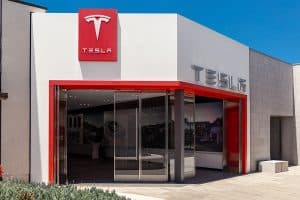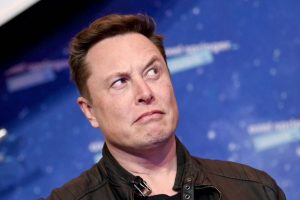- ⚡️ Trump supports EVs due to Musk’s endorsement.
- 🛑 Plans to end Biden’s non-existent EV mandate.
- 🇨🇳 Criticizes EVs for high costs and Chinese manufacturing.
- 🌐 Recommends diverse car market, not only EVs.
- 💸 Highlights high costs of installing EV chargers.
- 💬 Derides $100 trillion green policies.
- 🛡️ Proposes an iron dome to protect against World War 3.
- 🔄 Vows to replace $7,500 EV credit with a gas vehicle credit.
As the presidential campaigns heat up, candidate Donald Trump has taken a notable stance on electric vehicles (EVs), largely influenced by an endorsement from Tesla CEO Elon Musk. This blog post delves into Trump’s evolving views on EVs, his plans regarding existing policies, and the broader implications for the automotive and energy sectors.
The Endorsement: Musk’s Influence on Trump
Donald Trump’s recent pivot towards supporting electric vehicles has surprised many, primarily attributed to Elon Musk’s endorsement. While Trump has historically been skeptical of EVs, Musk’s backing seems to have prompted a more favorable outlook.
Key Insights:
- Endorsement from Musk: Musk, a pivotal figure in the EV industry, has strongly endorsed Trump’s candidacy, compelling Trump to acknowledge the importance of EV technology.
- Ambiguous Support: Despite the support, Trump’s statements reveal a combination of advocacy for EVs and criticism of certain related policies.
Analyzing Biden’s EV Mandate: Fact vs. Fiction
Trump has often spoken about ending what he refers to as Biden’s “EV mandate,” despite there being no formal mandate in place. Instead, Biden’s administration has focused on setting ambitious emission standards.
Key Insights:
- No Formal Mandate: It’s important to note that Biden’s administration does not enforce an outright EV mandate. Instead, they have proposed emission standards aiming for a substantial market share of EVs by 2032.
- Emission Standards: These standards involve light-duty auto sales reaching a 67% market share by 2032 and about 50% of overall auto sales being electric by 2030.
Critique of EV Manufacturing and Market Diversity
Trump has highlighted several concerns about the existing EV landscape, including the high costs of EVs and their heavy reliance on Chinese manufacturing.
Key Insights:
- High Costs and Chinese Manufacturing: Trump points out the high costs of EVs and their components, most of which are manufactured in China. He suggests that this reliance hampers American economic independence.
- Market Diversity: Advocating for a diverse automotive market, Trump supports the availability of gas-propelled cars, hybrids, and EVs, arguing against a complete switch to electric vehicles.
Economic Implications: The Cost of EV Chargers
A significant part of Trump’s argument revolves around the financial burden posed by installing EV chargers, particularly in the Midwest.
Key Insights:
- High Installation Costs: Trump claims that setting up eight EV chargers can cost up to $9 billion. While this figure is an exaggeration, it underscores the concern over the high infrastructure costs needed to support a wide-scale EV transition.
Green Policies and the Iron Dome Proposal
In his speeches, Trump has expressed disdain for what he terms the “$100 trillion green new scam” and has intriguingly proposed an iron dome to protect against global conflicts.
Key Insights:
- Criticism of Green Policies: Trump vows to end what he sees as excessively costly green policies, focusing instead on reducing energy prices and revitalizing drilling projects.
- Iron Dome Proposal: He has proposed building an iron dome over the U.S. as a defensive measure against potential global conflicts, emphasizing national security.
The EV Tax Credit Controversy
Another contentious issue is the federal EV tax credit, which Trump and his running mate J.D. Vance oppose. They propose replacing it with a credit for gas vehicles.
Key Insights:
- Proposed Replacement: Last year, Vance suggested replacing the $7,500 EV tax credit with an equivalent credit for gas vehicles, criticizing the U.S.’s reliance on China for EV materials.
In conclusion, Trump’s stance on electric vehicles is a complex blend of support influenced by Elon Musk’s endorsement and criticism of existing policies and economic implications. As the 2024 elections approach, his position on EVs and related policies will be a significant talking point, impacting both national politics and the automotive industry.





